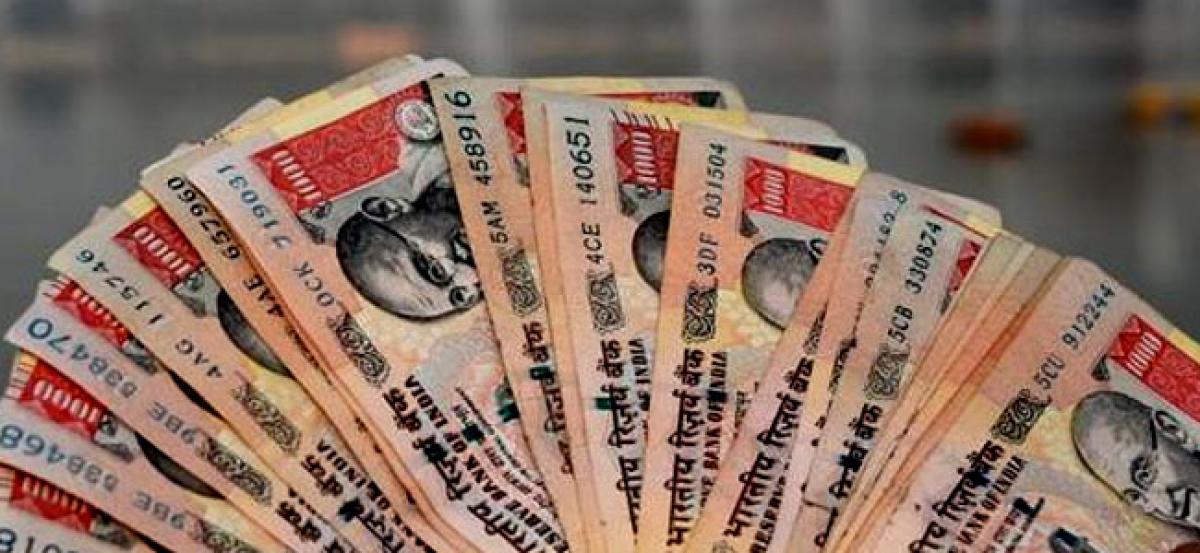Live
- A feminist lens on our mythology
- Prakasam police rescues kidnapped toddler within hours
- Time to get rid of Sattavad and Parivarvad politics
- Extend neither spl nor ill treatment
- Must-Watch OTT Originals in 2024: The Year’s Best Shows and Movies
- 40 Indian startups secure over $787 mn in a week
- India now formidable force on chess board
- Raghavendra Mutt pontiff visits Tirumala
- Whistleblower of OpenAI found dead in US apartment
- Trump’s US-first policy & India’s strategic latitude
Just In

The All India Association of Industries (AIAI) on Thursday urged the government to come out with new Rs 200 currency notes to help tide over the ongoing crisis following demonetisation of Rs 500 and Rs 1,000 notes.
Mumbai: The All India Association of Industries (AIAI) on Thursday urged the government to come out with new Rs 200 currency notes to help tide over the ongoing crisis following demonetisation of Rs 500 and Rs 1,000 notes.
AIAI President Vijay Kalantri, while lauding demonetisation, said thought the announcement was well received, its impact was felt only later as the people panicked and queued up outside banks and ATMs.
"Banks are not ready with enough supply of smaller denomination notes and the common man is facing severe problems in day-to-day transactions of the (new) high-denomination Rs 2,000 notes," he said.
Moreover, the new Rs 2,000 notes are smaller in size compared to the old notes and the ATMs have not been calibrated to dispense them with the results that they can store less cash and that too gets exhausted quickly.
In view of the practical difficulties for the people, Kalantri said the government should consider introducing Rs 200 currency notes which can ease the waiting period, without the fear of this denomination becoming counterfeit.
He added that the government should have planned the implementation of demonetisation more effectively by creating awareness which would have boosted confidence levels and prevented the panic situation experienced today.
The people continue to be frantic spending long hours in unending queues outside banks and ATMs, while the informal economy is the worst-hit with the poor and marginalised suffering the maximum, Kalantri pointed out.
Besides, he said the daily businesses and MSMEs dependent on cash for their daily operations are hit badly and though the government increased withdrawal and deposit caps, it will still be a few weeks before the situation stabilises.
"Considering that the informal sector accounts for about 45 percent of the GDP and around 80 percent of employment, imposing a sudden ban on cash liquidity can be very damaging both in terms of growth and equity," Kalantri said.
He cautioned that India still has to go a long way to put in place infrastructure for a cashless economy and the country must first overcome the low levels of digital literacy.
"Besides addressing these challenges, it must be noted that some of this cash is held by hundreds of millions of the poor as savings for meeting emergencies, and they have little else to fall back upon," said Kalantri, adding that though the demonetisation move is bold, it has resulted in huge chaos and cost.

© 2024 Hyderabad Media House Limited/The Hans India. All rights reserved. Powered by hocalwire.com







